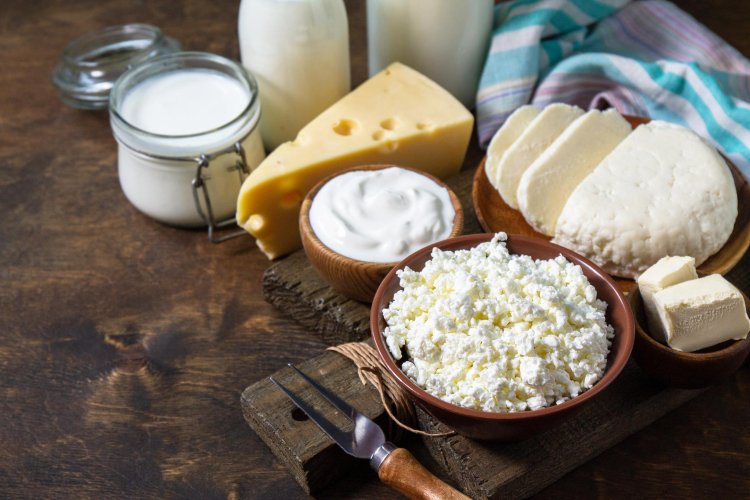Cultivating Health: The Power of Fermented Dairy Products
Fermented dairy products have been cherished for centuries, valued not only for their distinctive flavors but also for their potential health benefits. The fermentation process involves the conversion of milk by beneficial bacteria and yeasts, resulting in products that are not only delicious but also rich in probiotics and nutrients. Let's explore the diverse world of fermented dairy

Types of Fermented Dairy Products
-
Yogurt: Yogurt is perhaps the most well-known fermented dairy product. It is made by fermenting milk with live bacterial cultures, primarily Lactobacillus bulgaricus and Streptococcus thermophilus. This process thickens the milk and gives yogurt its tangy flavor. Varieties include:
- Greek Yogurt: Known for its creamy texture due to straining, which removes whey and increases protein content.
- Probiotic Yogurt: Contains additional live cultures beyond the standard strains, promoting gut health.
-
Kefir: Originating from the Caucasus region, kefir is a fermented milk drink made by adding kefir grains to milk. These grains contain a symbiotic mixture of lactic acid bacteria and yeasts, which ferment the sugars in the milk. Kefir has a slightly effervescent texture and a tangy taste, and it's known for its robust probiotic content.
-
Buttermilk: Traditionally, buttermilk was the liquid left after churning butter from cream. Modern buttermilk is cultured by adding lactic acid bacteria to milk, resulting in a tangy flavor and creamy texture. It's often used in baking and cooking to impart tenderness and flavor to dishes.
-
Fermented Cheese: While not a liquid like yogurt or kefir, cheese undergoes fermentation during its production process. Bacterial cultures transform milk into cheese, contributing to its unique flavor and texture. Examples include cheddar, Gouda, and Camembert, each with distinct microbial profiles and aging processes.
Health Benefits of Fermented Dairy Products
-
Digestive Health: Fermented dairy products contain probiotics that can improve gut health by maintaining a balance of beneficial bacteria. They may alleviate symptoms of lactose intolerance and support digestive regularity.
-
Nutrient Absorption: Fermentation can enhance the bioavailability of nutrients in dairy products, such as calcium, which is crucial for bone health. The fermentation process also produces B vitamins, essential for energy metabolism.
-
Immune System Support: Probiotics found in fermented dairy products may bolster the immune system by modulating immune responses and enhancing gut barrier function. This can potentially reduce the incidence and severity of infections.
-
Culinary Uses:
- Yogurt: Besides being enjoyed plain or with fruit, yogurt is used in marinades for tenderizing meat, as a base for creamy sauces and dressings, and in baking to add moisture and tangy flavor.
- Kefir: Besides drinking kefir plain, it can be used as a base for smoothies, salad dressings, or even in baking to add a slight tang and moist texture to cakes and muffins.
- Buttermilk: Used in baking to create tender cakes, biscuits, and pancakes. It also makes a refreshing drink when chilled and seasoned with herbs or salt.
- Cheese: Apart from being a staple on cheese boards, cheeses like cheddar and Gouda are melted into sauces, grated over pasta dishes, or paired with fruits and nuts for a savory-sweet snack.
Considerations and Tips
- Active Cultures: Look for labels indicating "live and active cultures" to ensure the presence of beneficial probiotics.
- Lactose Intolerance: Fermentation reduces lactose content, making some fermented dairy products easier to digest for lactose-intolerant individuals.
- Variety: Experiment with different types and flavors of fermented dairy products to find ones that suit your taste preferences and dietary needs.
Disclaimer: The information provided in this article is for educational purposes only and should not be considered medical advice. If you have any health concerns or are experiencing symptoms, it is important to consult with a healthcare professional, such as a doctor or clinic, for proper diagnosis and treatment. Always seek the advice of your doctor or other qualified health provider with any questions you may have regarding a medical condition.
Hashtags: #FermentedDairy #Probiotics #HealthyEating
What's Your Reaction?





















